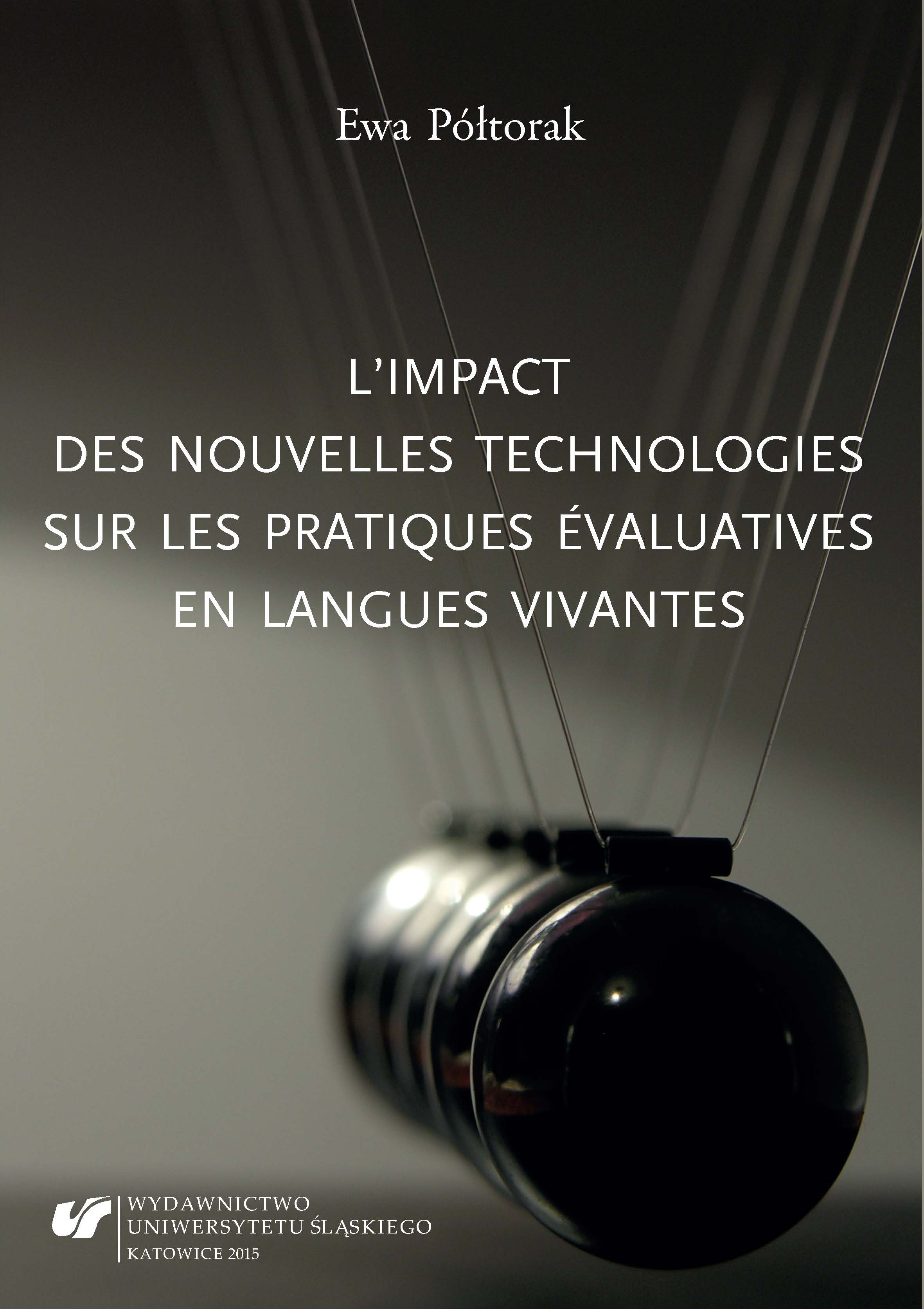L’impact des nouvelles technologies sur les pratiques évaluatives en langues vivantes
Influence of New Technologies on the Evaluation of Learner’s Progress in Foreign Language Acquisition
Author(s): Ewa Półtorak
Subject(s): Language and Literature Studies, Foreign languages learning
Published by: Wydawnictwo Uniwersytetu Śląskiego
Summary/Abstract: The aim of the author was to analyze some possibilities that go with the use ofinformation and communication technologies in the process of learner evaluation in foreignlanguage acquisition. The research focused on the process of receiving and providingfeedback information, which is one of the key concepts of assessment for learning,otherwise known as formative evaluation. Taking the view that feedback is oneof the most important elements in the process of acquiring new knowledge and skillsin a foreign language, as well as that it has a direct influence on effective learning andteaching processes, the question is to know whether and to what extent a change inbroadly understood teaching/learning techniques can entail a change in received/providedfeedback information (its nature, quality, quantity, etc.). Thus defined researchproblem required, on the one hand, a deep analysis of the key concept, along with theexplanation of closely related notions (such as language norm and language error) and,on the other hand, a detailed analysis of techniques that enable information transferbetween a teacher and a foreign language learner, with special emphasis on the socallednew techniques of teaching/learning that are provided by means of educationalICT tools. The above-delineated analyses were taken as a point of departure in planningthe research that was conducted as a didactic experiment. The research predominantlyfocused on the process of teaching/learning a foreign language on elementary level,synonymous with A1 and A2 levels according to the Common European Frameworkof Reference for Languages. The participants were students who have taken up Frenchas another foreign language after English and their mother tongue (Polish). The mainpurpose of the research was to find an answer to the following question: Do feedbackacquisition and provision via electronic way provide a teacher as well as a learner withthe same benefits as traditional techniques in the evaluation of learner’s progress? Itshould be stressed that for the purpose of this study electronic feedback has been definedas a sort of information accessible only via computers and the Internet, whereastraditional techniques of transferring and acquiring feedback information applied to theprocess of information exchange between the student and teacher occurring directly inthe foreign language classroom. The research material that was used to compare the effectivenessof both types of feedback was based on written exercises. Detailed analysesof the research results clearly showed that, from the perspective of learning effects, bothforms of feedback provide comparable benefits for the learner. Nevertheless, a crucialdifference has emerged as far as teacher’s work is concerned, that is, thanks to electronictools a teacher gains additional information on the quality of the answers given bylearners, as well as certain strategies used by learners in order to accomplish a languagetask. Information gained in this way enables the teacher not only to diagnose linguisticand communication problems that an individual learner may encounter but also to adjustthe nature of feedback information to each learner’s individual needs.
- E-ISBN-13: 978-83-8012-342-7
- Print-ISBN-13: 978-83-8012-341-0
- Page Count: 272
- Publication Year: 2015
- Language: French
- eBook-PDF
- Table of Content
- Introduction

